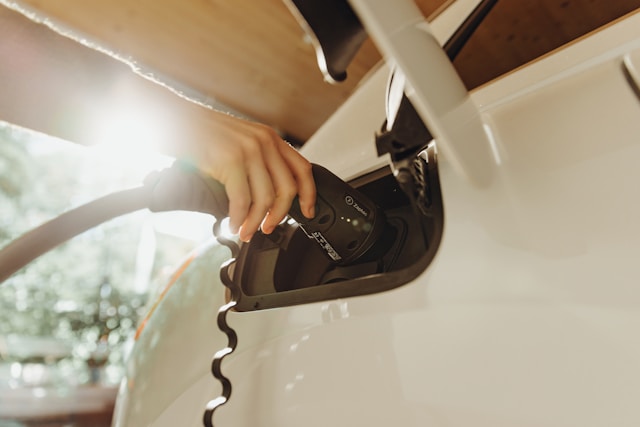Industry leaders at Riyadh’s EV Auto Show forecast a transformative shift in the kingdom’s automotive market, aligning with Vision 2030’s sustainability goals
The EV Auto Show, unfolding at the Riyadh International Convention and Exhibition Center from September 17 to 19, 2024, has emerged as a pivotal event in shaping the future of electric vehicles (EVs) in Saudi Arabia and the Middle East. The event, which aligns with Saudi Vision 2030, has attracted a diverse range of stakeholders, including automakers, charging solution providers, and policymakers, all eager to discuss the region’s evolving electric mobility landscape.
Heiko Seitz, PwC’s global e-mobility leader, headlined one of the key panel discussions, highlighting Saudi Arabia’s favourable conditions for EV adoption. According to Seitz, the Kingdom’s climate is advantageous for battery electric vehicles, surpassing colder regions in Europe. He noted that the cost of EVs is nearing parity with traditional internal combustion engines, making them increasingly affordable. This trend is expected to accelerate with the introduction of more EV models and brands.
Embed from Getty ImagesSeitz also projected a dramatic shift in the global automotive market, predicting that 30% of all vehicles will be battery-electric within seven years. For Saudi Arabia, he forecasted that by 2030, 64% of new cars sold in the Kingdom will be fully electric, driven by growing interest from both local and international brands.
The event underscored the critical role of renewable energy in advancing Saudi Arabia’s EV strategy. Seitz emphasized that the integration of solar power into the energy mix would significantly contribute to the greening of the mobility sector. “Saudi Arabia is set to not only electrify its mobility sector but also make it greener with the integration of renewable energy,” he said.
Oswaldo Dorantes, manager of automotive at the National Industrial Development Center, discussed the progress in local EV manufacturing. He highlighted ongoing initiatives to boost the automotive sector and develop local talent through programs like the National Automotive and Vehicle Academy. Despite these advancements, Dorantes acknowledged challenges related to scaling and the need for government support to attract suppliers and make the sector competitive.
Julia Palle, vice president of sustainability at Formula E, shared insights on the technological advancements in EV batteries and powertrains. She explained that EVs are highly efficient, converting 85% of their energy into movement compared to just 25% in traditional vehicles. Klaus Wawra, managing director at Hofer Powertrain, added that the technologies developed for EVs also benefit hybrid vehicles, offering opportunities for technological crossover.
The event also revealed a significant rise in consumer demand for hybrid vehicles in Saudi Arabia. Hasan Nergiz, managing director at Al-Futtaim Electric Mobility Co., reported that 75% of recent orders are for hybrids, reflecting a broader trend toward sustainable mobility solutions in the Kingdom.
Analysis:
Political: The EV Auto Show highlights Saudi Arabia’s commitment to Vision 2030, which seeks to diversify the economy and reduce the Kingdom’s reliance on oil. By embracing electric vehicles and renewable energy, Saudi Arabia aligns itself with global sustainability trends and strengthens its position as a leader in the green transition. This shift is not only a strategic move to foster economic diversification but also a way to enhance the country’s geopolitical influence by showcasing its commitment to modern, sustainable technologies.
Social: The growing focus on electric vehicles and renewable energy reflects a broader societal shift towards environmental consciousness. The event underscores how societal values are evolving, with increasing public support for sustainable practices and technologies. The rise in consumer demand for hybrid and electric vehicles indicates a significant change in consumer preferences, driven by greater awareness of environmental issues and a desire for cleaner transportation options. This shift mirrors global trends and highlights the Kingdom’s adaptation to these evolving societal norms.
Racial: While the event does not directly address racial issues, it contributes to a more inclusive global dialogue on sustainability. By advancing electric vehicle technology and renewable energy, Saudi Arabia is participating in a global movement that has implications for diverse communities around the world. Ensuring that the benefits of these advancements reach all demographics, including marginalized communities, will be crucial for achieving equitable progress in sustainability.
Gender: The event does not explicitly focus on gender issues, but the broader trends in the automotive and technology sectors indicate a growing emphasis on gender diversity. As more women enter STEM fields and leadership roles within the automotive industry, their contributions can further drive innovation and inclusivity. Promoting gender equity in the EV and renewable energy sectors can enhance the industry’s growth and ensure that diverse perspectives shape the future of mobility.
Economic: The forecasted rise in electric vehicle adoption and renewable energy integration presents significant economic opportunities for Saudi Arabia. The shift towards EVs is expected to create new job opportunities in manufacturing, technology, and renewable energy sectors. Additionally, the growth of the local EV industry and the expansion of charging infrastructure will stimulate economic activity and attract investment. As Saudi Arabia positions itself as a leader in the green economy, it can also enhance its competitiveness and economic resilience in the global market.
